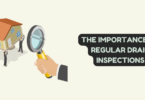
Roof
Some people are cut out for a nine-to-five job at the office. Others might prefer the financial upside and flexibility of starting their own business.
If you have a passion for roofing, there are a handful of things you’ll need to know before launching your own company—such as how to find roofing leads, which types of insurance to purchase, and more.
With careful planning, however, you can build your own successful roofing company. Here are seven key steps for getting your new business off the ground!
1. Craft a Business Plan
While you might be eager to install decking or repair shingles as soon as possible, your roofing company first needs a business plan—an essential document that will serve as the roadmap for your new venture.
You might to have a professional draft up this plan for you, or you might scribble it down in a notebook. Its format isn’t as important as your ability to refer to it over time.
To craft a business plan, first list your company’s objectives and how you plan to achieve them. The plan should also outline your operational structure, as well as your approach to marketing and sales. Finally, a traditional plan will also list your startup budget, capital, and any other resources you plan to leverage.
2. Brush Up on Legal Requirements
When starting a new roofing business, there are various legal considerations to be mindful of—from choosing the legal structure of your company and registering your business to getting all of the required licenses and permits for the job.
This information is readily available online, but it may also be wise to consult someone with more experience in this area. If you know another contractor, roofing business owner, or attorney, lean on them for guidance!
3. Begin Tax Planning Now
As you might imagine, business taxes work much differently than personal income taxes. To avoid overpaying the government or being left with enormous tax bill come tax season, you should study the tax code for your type of business—not only at the national level but also state and local levels.
Better yet, consider working with a financial planner. Decisions as simple as purchasing new equipment can have tax implications for your business, and a financial planner can help you make the most tax-conscious decisions year-round. This could end up saving you a fortune—leaving you with more money to pour right back into your roofing business!
4. Purchase Commercial Insurance
Roofing contractors face certain risks and dangers. In fact, roofers die at close to twice the average rate of all construction workers. A costly lawsuit could easily bankrupt a roofing company while it is still in its startup stage.
For this reason, all roofing contractors should purchase an appropriate level of commercial insurance. Important types of coverage include general liability, professional liability, workers’ compensation, and business owner’s insurance.
5. Buy Tools, Equipment, and Supplies
If you hope to deliver a safe and reliable service to customers in your community, you will need to purchase high-quality tools, equipment, machinery, supplies, and other resources.
Nail guns, staplers, and hammers, shovels, ladders, trailers, and fall protection gear are just a handful of the many items you will need in your arsenal before you start. Make plenty of room in your budget for construction materials, as prices are 24.4% higher than a year ago.
6. Start Assembling Your Team
When just starting out, you might be the only person working for your business. As you grow and take on more projects, however, you will likely need to supplement with more manpower—both in the office and out on the job.
Depending on your business’s greatest needs, you may need to consider hiring an office manager, project manager, sales representative, estimator, foreman or installer.
7. Generate a Steady Stream of Leads
As you let family and friends know about your new business, they may send a few customers in your direction. As that pool dries up, however, you will need a plan to find customers. Fortunately, there are several ways to create a flow of new leads.
For one, you can build a website and craft content that is optimized for search engines. When done correctly and consistently, this will allow your business to rank for local and industry-related keywords—attracting potential customers to your website.
You might also choose to invest in paid advertising on Google, Facebook, Instagram, YouTube, and other platforms. While a little outdated in today’s digital landscape, you might even choose to leverage direct mail. In any case, identify the best advertising method for your roofing business and stick with it!





